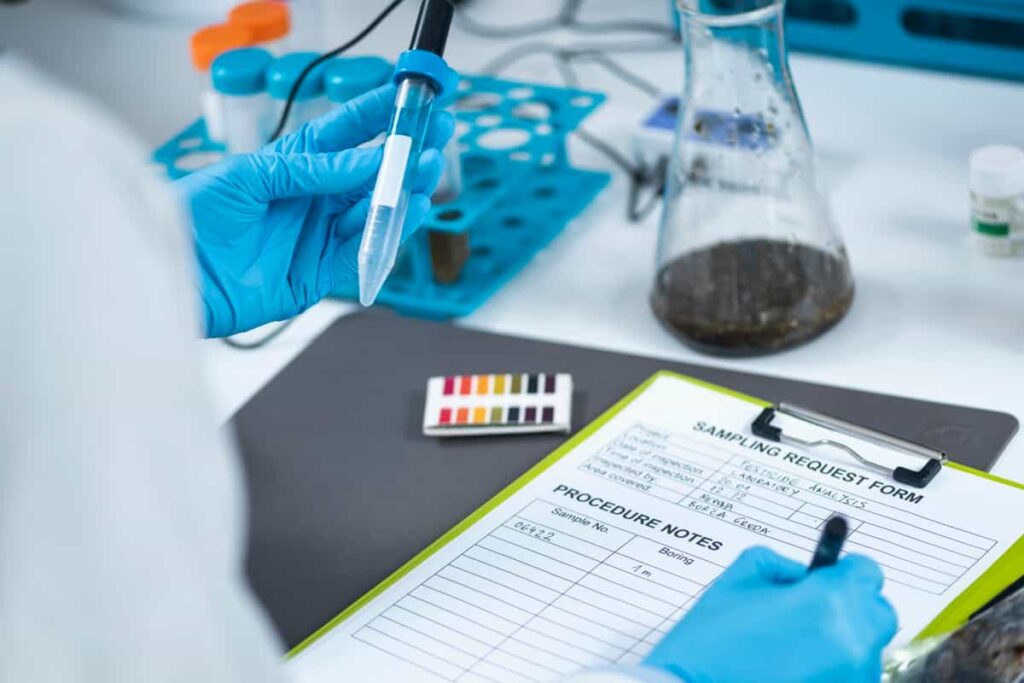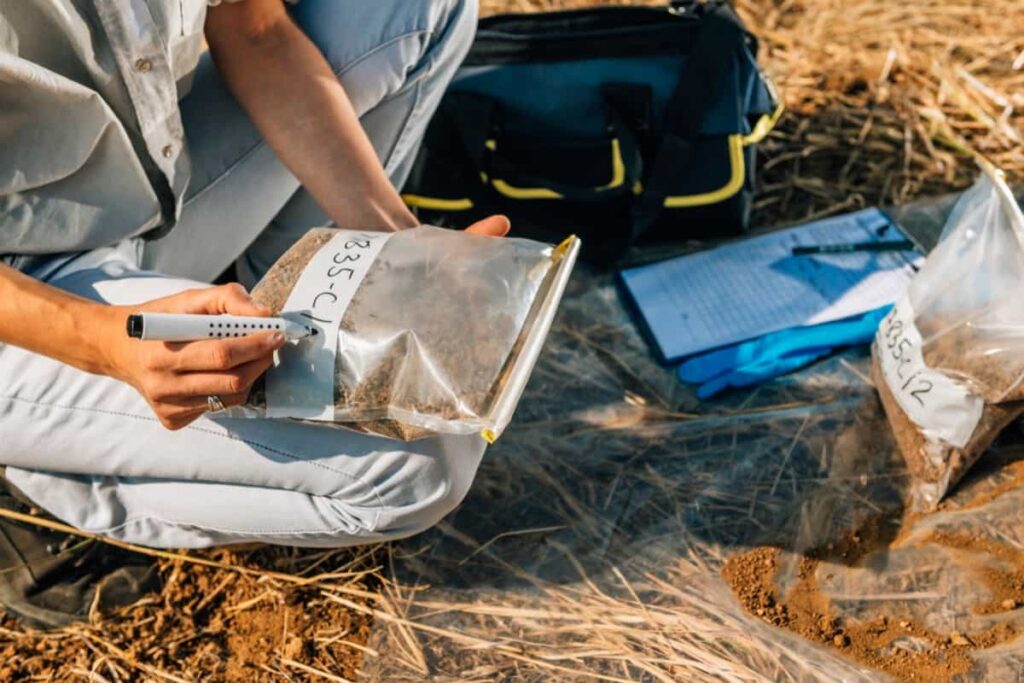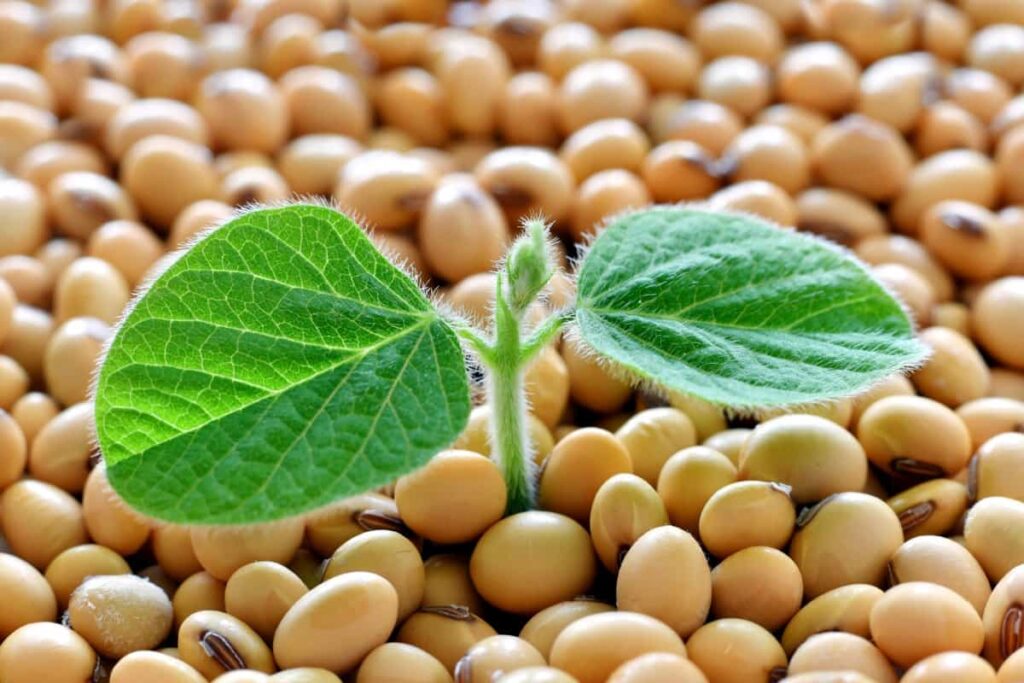The organic farming certification process in India is a vital step for farmers and businesses aiming to establish their credibility in the organic market. This process ensures that products are genuinely organic and meet specific standards, thereby gaining trust among consumers. The organic certification process in India is overseen by various organic farming certification agencies, ensuring compliance with established norms.

It involves several steps, including application, inspection, and compliance with organic farming standards. The certification validates the produce’s organic nature and opens doors to larger markets, both domestically and internationally. This process is crucial for maintaining the integrity and reliability of the organic farming sector in India.
Organic Farming Certification Process in India
Importance of Organic Standards for Certification
To help heirloom tomato plants grow well and stay safe from problems like diseases and pests, it’s a good idea to use stakes or cages for support. These standards define what practices are acceptable for products to be considered organic. They cover various criteria, including soil quality, pest control methods, additives used, and produce handling.
These standards ensure that the organic farming certification in India is not just a label but a guarantee of quality and adherence to eco-friendly and sustainable farming practices. By meeting these standards, farmers and producers assure consumers of the authenticity and safety of their products. The standards also play a crucial role in preserving the environment and supporting the health of consumers and the community.
Eligibility Criteria for Organic Farming Certification in India
Farmers and producers must adhere to predefined criteria to be eligible for organic farming certification in India. Firstly, the land used for cultivation must have been free from prohibited chemical substances for a certain period, typically three years. This ensures that the soil is free from contaminants that can compromise the organic integrity of the produce. Farmers must also implement organic farming methods, including natural fertilizers and pest control measures.
In case you missed it: Top 10 Best Organic Fertilizers in India: Top Companies for Vegetables, Flowers and Fruit Plants along with Price

Documentation and record-keeping are critical, as these provide evidence of adherence to organic practices. Additionally, farmers must be willing to undergo periodic inspections and audits by certification agencies. This comprehensive eligibility criterion ensures that only genuinely organic products receive certification, thus maintaining the trust and confidence of consumers.
Understanding the Organic Certification Process in India
The organic farming certification process in India involves several key steps. Farmers or producers must initially apply to an accredited organic farming certification agency. This application includes details about the farming practices, crop types, and the land used. After the application, an inspection is conducted by the certification agency. This inspection is crucial for assessing compliance with organic standards.
It includes an examination of the farm, records, and farming practices. If the inspection is successful and compliance with organic standards is confirmed, the certification agency issues a certificate. This certificate is a testament to the adherence to organic farming principles. Farmers and producers must also undergo regular inspections to maintain their certification status. This continuous monitoring ensures ongoing compliance and upholds the integrity of organic certification in India.
Documentation and Record-Keeping Requirements for Organic Certification
Effective documentation and record-keeping are essential components of the organic certification process in India. These requirements serve as proof of compliance with organic farming standards. Farmers and producers must maintain detailed records of their farming practices, including seed sources, fertilization methods, and pest control strategies. They must also document the land use history, verifying that it has been free from prohibited substances for the required period.
Records of sales and purchases are crucial to trace the movement and authenticity of organic products. Inspections by certification agencies heavily rely on these documents to assess adherence to organic standards. Thus, meticulous record-keeping facilitates the certification process and enhances transparency and trust in the organic farming sector.
Soil and Land Management Practices for Organic Certification
Specific soil and land management practices must be followed for organic certification in India. The primary focus is naturally maintaining soil health without synthetic fertilizers and chemicals. Practices like crop rotation, green manuring, and composting are encouraged to enrich soil fertility and structure.
Using natural fertilizers like compost and animal manure is crucial. The land should stay free from forbidden chemicals for about three years before starting organic farming. This waiting period ensures that the residues of conventional farming chemicals are minimized. Additionally, measures to prevent soil erosion and conserve water are important. These practices comply with the requirements for organic certification and promote sustainable and environmentally friendly farming.
Crop Production and Pest Management Guidelines for Certification
The crop production and pest management guidelines are critical for obtaining organic certification in India. Crop production must emphasize natural growth processes, biodiversity, and ecological balance. In organic farming, using genetically modified seeds is not allowed at all. Crop diversity and rotation are encouraged to maintain soil health and naturally prevent pest infestations.
In case you missed it: Best Natural Garden Pest Repellents: Homemade Organic and Natural Garden Pest Control Recipe

For pest management, reliance on natural and biological methods is crucial. This includes using beneficial insects, biological pest controls, and organic pesticides derived from natural sources. Chemical pesticides, herbicides, and synthetic fertilizers are not allowed. These guidelines ensure that organic crop production is carried out in a way that is healthy for consumers and sustainable for the environment.
Livestock Management and Animal Welfare Standards for Organic Certification
In organic certification, livestock management and animal welfare standards are paramount. Raising organic livestock in India means following rules to keep animals healthy and happy. This includes organic feed, adequate housing, and access to outdoor spaces. Growth hormones and antibiotics are prohibited unless required to treat an illness. Preventive healthcare practices, such as rotational grazing and a balanced diet, are encouraged to maintain animal health naturally.
Treating animals kindly is really important in these rules. These requirements contribute to the ethical aspect of organic farming and ensure that animal products like milk, meat, and eggs meet organic standards. Thus, maintaining high livestock management and animal welfare standards is crucial for organic certification in India.
Water Conservation and Irrigation Practices for Organic Certification
Water conservation and efficient irrigation practices are integral to achieving organic certification in India. These practices are focused on optimizing water use and minimizing the environmental impact of farming activities. Organic farmers are encouraged to adopt irrigation methods that reduce water wastage, such as drip or sprinkler systems.
Water conservation techniques, like rainwater harvesting and mulches, are also important to reduce evaporation. Additionally, managing irrigation to prevent waterlogging and soil erosion is vital. By implementing sustainable water management practices, organic farmers adhere to certification requirements and contribute to the conservation of this vital resource, ensuring the sustainability of their farming practices for the future.
Handling, Processing, and Packaging Requirements for Certification
The handling, processing, and packaging of organic products are critical stages impacting their organic integrity. For organic certification, these processes must be carried out to prevent contamination with non-organic substances. Handling and processing facilities must be clean and separate from non-organic product areas.
The use of additives and processing aids must comply with organic standards, and any prohibited substances should be strictly avoided. Regarding packaging, materials that prevent contamination and preserve the quality of organic products are essential. Clear labeling is also necessary to ensure consumers are well-informed about the product’s organic status.
Transportation and Storage Guidelines for Organic Products
Organic products must be clearly labeled and segregated from non-organic items during transportation to prevent cross-contamination. Vehicles and containers used for transport should be clean and free from prohibited substances. Similarly, storage facilities for organic products must ensure that these items are not mixed with or contaminated by non-organic products.
In case you missed it: Best Fertilizer for Cherry Trees: Organic, Natural, Homemade, NPK Ratio, and Schedule

Proper ventilation, temperature control, and pest management in storage areas are also essential to protect the quality and integrity of organic products. Compliance with these guidelines ensures that the organic status of the products is preserved right up to the point of sale.
Inspection and Verification Procedures for Organic Farming Certification
Inspection and verification are fundamental components of India’s organic farming certification process. These procedures ensure that all practices and products meet the required organic standards. The process typically begins with an application by the farmer or producer to a certified organic farming certification agency. Following the application, inspectors conduct thorough on-site evaluations of the farm or processing facility. They review the documentation, observe farming practices, and may take samples for testing.
Inspectors assess compliance with standards related to crop production, soil management, pest control, livestock management, and other relevant areas. If discrepancies are found, the applicant may need to make adjustments before certification can be granted. Regular inspections are also conducted post-certification to ensure ongoing compliance. Through these rigorous inspection and verification procedures, the integrity and trustworthiness of organic certification in India are upheld.
Compliance and Enforcement Measures in Organic Farming Certification
Compliance and enforcement measures are crucial for maintaining the credibility of organic farming certification in India. These measures ensure that all certified organic products adhere to the specified standards. Compliance involves regular on-site inspections, a thorough review of farming practices, and verification of records and documentation. If non-compliance is detected, enforcement actions are taken, including suspension or revocation of the organic certification.
Farmers and producers might also be required to undergo a corrective action plan to address the issues identified. These measures deter non-compliant practices and help maintain the integrity and trust of the organic certification process. They also reassure consumers about the authenticity and quality of the organic products they purchase.
Role of Certifying Agencies in the Certification Process of Organic Farming
Certifying agencies play a pivotal role in India’s organic farming certification process. These agencies are authorized and accredited bodies responsible for ensuring that organic farming standards are strictly followed. Their responsibilities include evaluating applications for organic certification, conducting inspections and audits of farms and processing facilities, and verifying compliance with organic standards.
They provide guidance and support to farmers and producers throughout the certification process. Once compliance is confirmed, these agencies issue the organic certification, a mark of trust and authenticity. Additionally, they conduct regular follow-up inspections to ensure ongoing compliance. The role of certifying agencies is essential for maintaining the rigor and credibility of the organic certification process in India.
Organic Farming Certification Agencies in India
In India, several agencies are responsible for providing organic farming certification. These agencies are accredited by the Agricultural and Processed Food Products Export Development Authority (APEDA) under the National Programme for Organic Production (NPOP). They ensure that organic producers adhere to national and international organic farming standards.
In case you missed it: Best Fertilizer for Plum Trees: Organic, Natural, Homemade, NPK Ratio, and Schedule

Each agency follows a structured certification process, including application, inspection, verification, and certification issuance. These agencies also provide essential support and guidance to farmers and producers, helping them navigate the complexities of the organic certification process. Their role is fundamental in upholding organic farming standards and building consumer confidence in organic products.
Types of Organic Certification in India
In India, different types of organic certification cater to various segments of the agricultural sector. The most common type is individual or group certification for crop production, which includes fruits, vegetables, grains, and other plant-based products. Another type is the organic livestock certification, which covers animal-rearing practices and products like milk, meat, and eggs.
Processing and handling certification is available for entities that process, package, or handle organic products, ensuring that these processes adhere to organic standards. Additionally, a certification for wild products applies to naturally grown items sustainably harvested from the wild. Each type of certification has specific standards and criteria that must be met, reflecting the diverse aspects of organic agriculture and ensuring comprehensive coverage of all organic farming activities.
Cost of Organic Farming Certification Process in India
Getting organic farming certification in India can be expensive, and the price depends on things like how big your farm is, what type of certification you want, and which agency is doing the certification. Generally, the cost for small-scale farmers can range from approximately INR 5,000 to INR 15,000, while for larger farms or groups, it can escalate to INR 50,000 or more. These costs typically cover the application fee, inspection charges, and annual renewal fees.
In case you missed it: How to Grow Peas Faster: Best Tips to Increase Flowering, Fruiting, and Production Yield

In addition to these direct costs, farmers may incur indirect expenses related to transitioning to organic farming practices, such as the cost of organic seeds, natural pesticides, and the potential decrease in yield during the transition period. Farmers must consider these costs against the long-term benefits of organic certification, which often include higher market prices for organic produce and access to a growing organic market both domestically and internationally.
Conclusion
The organic farming certification process in India is a comprehensive system that ensures the integrity and quality of organic products, offering significant benefits for farmers, the environment, and consumers. While it involves various steps and adherence to strict standards, the long-term advantages of certification justify the effort and investment required.
- How to Maximize Sheep Farming Profit
- Broccoli Varieties: Choosing the Right Cultivars for Your Farm
- How to Raise Pigs in Your Own Backyard: A Comprehensive Guide
- Budget Friendly Sheep Shed Ideas: Cheap and Low-Cost Tips
- How Much Do Cattle Farmers Make: Revenue Streams in Cattle Farming
- Management Pests and Diseases in Your Cotton Field
- Sheep Farming Business Plan for Beginners
- Aquaponic Farming at Home: A Step-By-Step Guide
- Profitable Village Farming Business Ideas in 2024
- High-Yield Aquaculture: Fast-Growing Fish for Farming
- Effective Fish Pond Construction Techniques for Beginners
- Irrigation and Water Management in Pineapple Farming
- Blossom to Harvest: Mastering Flowering and Pollination in Papaya Farming
- Pig Fattening Essentials: From Selection to Sale for Beginners
- Raising Wagyu Cattle: A Complete Guide for Premium Beef Production
- Soil Types and Their Water Holding Capacity
- Optimizing Irrigation Schedules for Coconut Groves for Enhanced Yield
- Espresso Your Garden: Coffee Grounds for Healthier Acid-Loving Plants
- The Best Soil Mix for Snake Plants: How to Mix Your Own Snake Plant Soil
- Green Thumb Success: Expert Tips for Cultivating Greenhouse Beans All Year Round
- Bloom All Year Round: The Ultimate Guide to Indoor Hyacinth Care
- Eco-Friendly Gardening: How to Make Liquid Fertilizer from Kitchen Waste
- Ultimate Guide to Grow Anise in Pots: Explore Seed Propagation to Harvesting
- Guide to Raising Chester White Pigs: Discover Breed Facts to Growth Management
- Mastering the Elegance: The Ultimate Guide to Weeping Cherry Tree Care, Planting, and Maintenance
- Ultimate Guide to Planting Garlic in Grow Bags: Growing Strategies for Beginners
- How to Fix Spider Plant Leaf-Related Problems: Natural and Organic Remedies
- 10 Reasons Why Your Tulsi Plant is Shedding Leaves: Home Remedies and Solutions
- Optimizing Growth and Yield: The Advantages of Palm Bunch Ash Fertilizer
- Utilizing Neem Oil Extract as a Natural Pesticide for Hydrangea
- From Soil to Harvest: Various Ways in Which Farmers Can Use AI Tools
- Steps to Encourage and Induce Citrus Flowers: A Comprehensive Guide
- How to Fix Snake Plant Leaf-Related Issues: Natural and Organic Remedies
- Transform Your Garden into a Fragrant Oasis with Raat Ki Rani (Night Blooming Jasmine)
- Discover the Ideal Chicken Breeds for Philippine Farms
- How to Create a Poultry Egg Farm Business Plan for Profits
